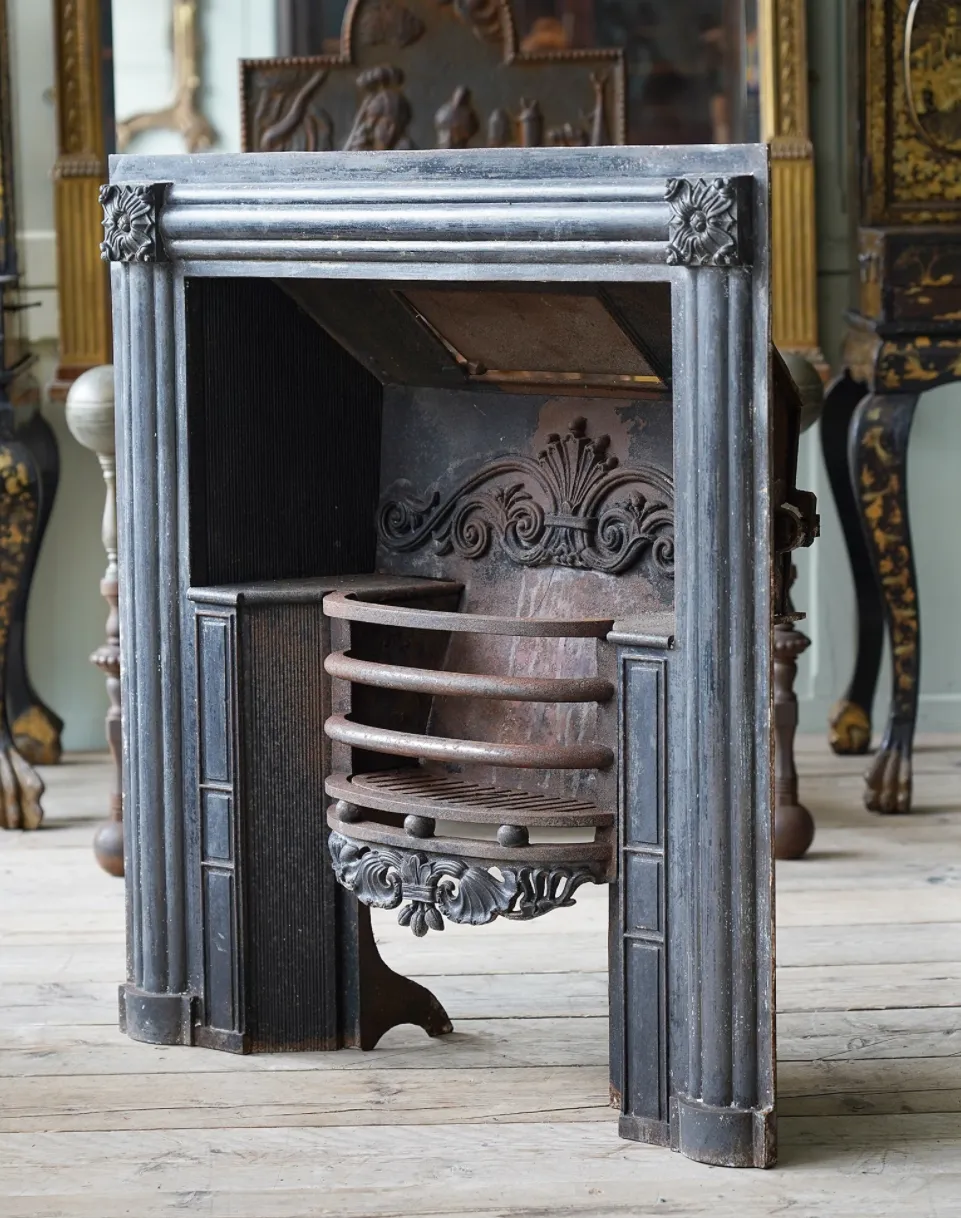My career as an antiques dealer began in the late 1980s, with £200 in my pocket, a battered old VW Beetle, and no clue about the business. The antiques world was shrouded in secrecy: it was highly competitive and dealers wouldn’t reveal a single thing.
I couldn’t afford a premises of my own, so my first site was next to Dad’s office in my parents’ garden, with an ad in the local newspaper: ‘WANTED! Stained glass windows, fireplaces, doors, flooring, architectural salvage’ (it cost me an astronomical £15 a week…).
I’d been working with stained glass so it seemed a logical place to start. I bought top lights (the square leaded panes from Victorian windows) for just £2 each. As local houses were being demolished to make way for a major ‘A’ road, I’d found a niche that no one else was interested in.
Some weeks, I’d pick up 70 or so, along with fireplaces, doors and windows if they were good. Every few weeks I’d ring up Carl, the dealer I worked with, and say, ‘I’ve got 200 windows’. He’d give me £4 each – fantastic business! I was making about £600 profit a week, but after a while, it really did feel like hard work, so Carl said, ‘Drew, I’ll do you a favour. Take the stock you have for me to Newark antiques fair. Ask £10 for those windows and more for the really good ones. That’s all I do.’

You might also like antiques fairs and auctions around the UK this month
So I put about 40 windows in the back of a truck with a load of architectural salvage and drove to Newark with a couple of mates, where we found ourselves in the middle of a field in the early hours of the morning, with no idea what we were doing.
Straightaway this big American guy came over and asked, ‘How much are your windows?’ I replied, ‘Those are £10 each and these are £15 each,’ just like Carl had told me to. Without hesitating he said, ‘Yup, I’ll take all of those, what else have you got?’ From this one deal I made about £5,000 and it was still only 5.30am. A moment later, a German buyer wanted to buy all my architectural carvings and old wooden panelling, which I’d picked up from a demolition site for next to nothing.
You might also like how to thrift furniture for your home
Next thing, a Japanese fella and his interpreter jumped into the back of our van. He asked me how much the church windows were – I said £3,000 and he said, ‘OK’. By 6.30 that morning, I had about £9,000 in my hands – more money than I’d ever had in my life. Then I did something that was pure instinct: I went around the fair to buy more stock and sold it all. In that moment, I became a proper dealer.
I’ve definitely learnt the hard way – I’ve bought too cheap, sold for less, trusted the wrong people. But a few years on, we were the biggest architectural salvage dealers in North Wales and we had a concession in Liberty. The reality of dealing and having a specific aesthetic is like being naked and walking around saying, ‘This is what I’ve got and I think it’s the best!’ But if you’re bold enough to try, it’s hugely rewarding, always interesting and you learn something new every day.
Drew's top tips for new antiques dealers
- Before you set up on your own, go and work for another dealer, even if it’s for free. Work for an auction house, an architectural salvage guy – anyone who has a passion, so you can learn about the business from the inside.
- Be single-minded and dedicated. Learn all you can about the kind of antiques you love.
- Believe in yourself. You will evolve your own style as you engage with your subject.
- To stand out from the crowd, specialise. Be original. Be brave. Only sell what you love. When I started to do this 10 years ago, my business really took off.
- Network. Meet other dealers and immerse yourself in the antiques world. I would have loved to have been part of the Antiques Young Guns if it had existed when I started out.
- When you make mistakes, learn from them!
More from Drew Pritchard:
How I got into the antiques trade
Drew Pritchard’s sofa collection with Barker and Stonehouse
Drew Pritchard on his book, favourite antiques and upcoming ventures
How to create country house style
How to be a successful antiques dealer
The thrill of an unexpected find
